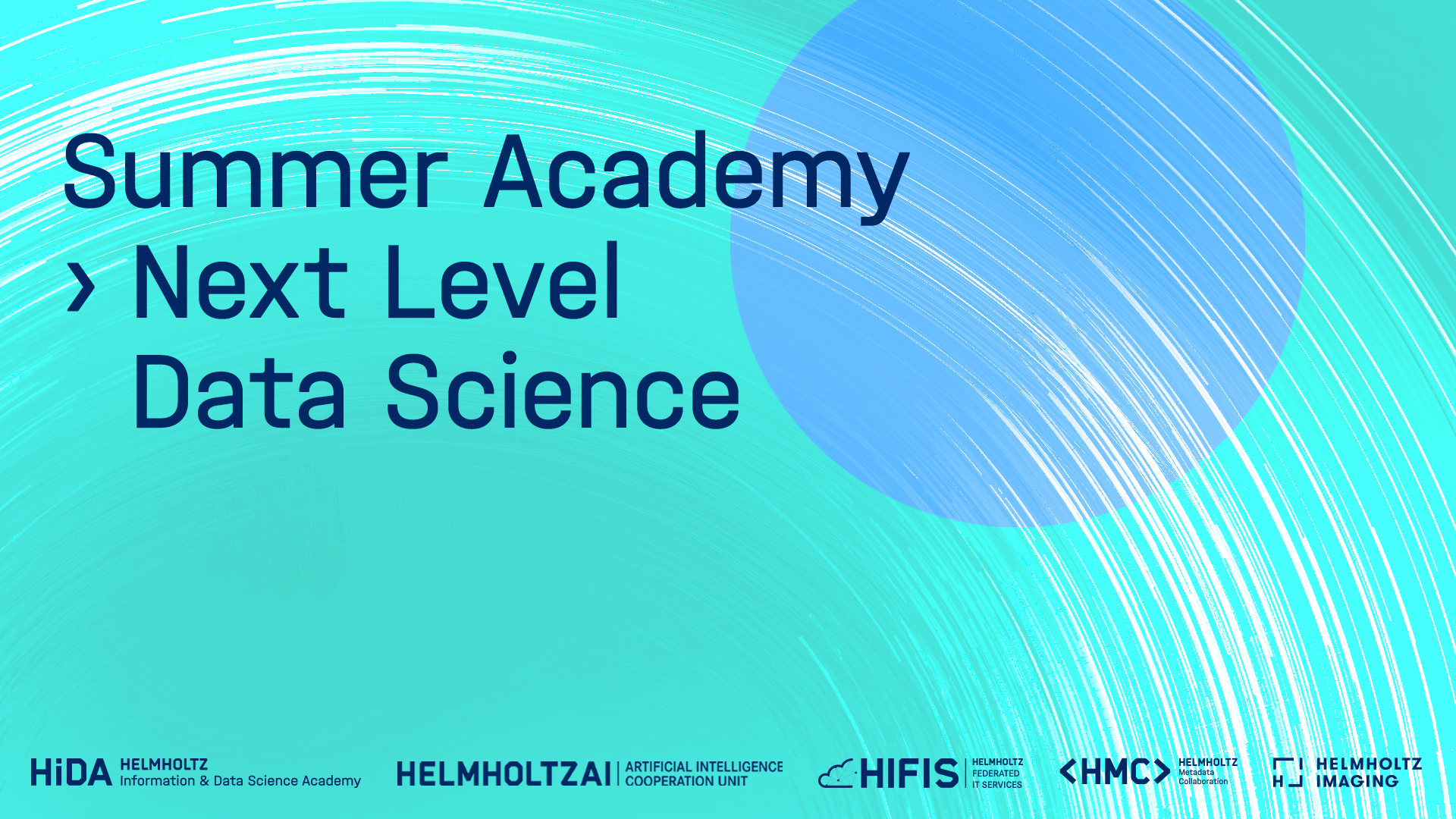- Indico style
- Indico style - inline minutes
- Indico style - numbered
- Indico style - numbered + minutes
- Indico Weeks View
Incubator Summer Academy - Next Level Data ScienceOnline Event
→
Europe/Berlin
Description

Once more, the five Helmholtz incubator platforms Helmholtz AI, Helmholtz Imaging, HIFIS, HIDA and HMC have teamed up to create another edition of the Incubator Summer Academy - Next Level Data Science!
We have designed a joint program with a variety of course packages covering state of the art data science methods and skills, as well as networking opportunities in our Summer Academy Gathertown space!
Ranging from fundamental course packages such as “Python” or “Introduction to Scienctific Metadata” to advanced topics like “Machine Learning Based Image analysis”, the program offers participants the opportunity to select course packages that best suit their experience level and interest.
The Incubator Summer Academy is open to all doctoral and postdoctoral researchers in the Helmholtz Association. Additionally, a small number of seats are reserved for Master students, doctoral and postdoctoral researchers from other research institutions and universities.
As a kick off, Dr.Dirk Werth from the August-Wilhelm Scheer Institut will give a keynote on "Could AI become the better scientist? Understanding how digital science impacts our life in science, education and business" (Abstract) during our opening event on September 18th (9-10am).
Registration is now closed.
For those who have registered for one or multiple course packages:
- After registration, you will have received a registration notice via e-mail. Please note that this is NOT yet a confirmation.
- If you are selected as a participant for the course package, you will be notified about ten days to one week prior to the Incubator Summer Academy.
- Please make your own calendar entries so that you do not miss the course package you registered for.
- The event will take place in Gathertown. The link to our Incubator Summer Academy Gathertown space will be shared with you shortly before the start of the event.
Questions?
Write us at hida-courses@helmholtz.de
